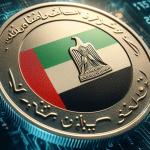In a move that underlines the city’s commitment to shaping a future-ready generation, Dubai has unveiled a transformative education strategy aimed at aligning academic systems with rapid technological advancements, including artificial intelligence (AI), coding, and digital literacy. The initiative comes as part of the broader UAE vision to become a global innovation hub and knowledge-based economy.
The new strategy—announced by the Knowledge and Human Development Authority (KHDA) and Dubai’s Executive Council—aims to modernize both curriculum content and teaching methods to equip students with the future skills needed in a fast-evolving global landscape.
Focusing on Future Skills and AI
One of the key pillars of the strategy is integrating AI and emerging technologies into the core curriculum. Starting from the primary level, students in both public and private schools will have access to modules in coding, robotics, digital ethics, and data literacy. Specialized programs will also be launched to prepare students for AI-driven job markets, with partnerships established between schools and tech firms.
The goal, according to officials, is to create a generation that is not just tech-savvy, but also capable of contributing to and leading innovation across various industries.
Redesigning the Learning Environment
The plan includes significant investment in digital infrastructure, smart classrooms, and teacher upskilling. Schools will adopt flexible learning environments that combine traditional in-class education with virtual learning experiences. This hybrid model is expected to provide students with greater autonomy and adaptability, key traits for thriving in the modern world.
Additionally, the government has committed to training over 10,000 educators in AI literacy and digital teaching methods by 2026. These training programs will be coordinated in collaboration with global education partners and UAE universities.
Boosting Global Competitiveness
Dubai’s education authorities emphasized that the new system is designed to enhance the global competitiveness of students graduating from UAE schools. By benchmarking local curricula against international standards and increasing the number of internationally accredited schools, the city hopes to attract more expatriate families while ensuring that Emirati youth are globally employable.
"The world is changing fast, and so should our approach to education. Dubai is leading the way by designing a learning ecosystem that is not only relevant but also resilient in the face of future challenges," said Dr. Abdulla Al Karam, Director General of KHDA.
Student Wellbeing and Inclusion
In line with Dubai’s broader focus on community wellbeing, the education strategy also places a strong emphasis on mental health and inclusivity. Schools will implement new wellbeing benchmarks and support systems for students, ensuring a holistic learning experience that balances academic excellence with emotional resilience.
Dedicated centers for students of determination (special needs) will also be expanded across Dubai, providing equal access to digital learning resources and specialized support.
Public and Private Sector Collaboration
To bring this vision to life, Dubai’s government will work closely with private education providers, technology companies, and international curriculum developers. Incentives will be offered for private schools that invest in innovation, adopt AI-powered learning systems, or create bespoke programs focused on future job sectors like fintech, climate tech, and biotechnology.
Several pilot projects have already been launched under this collaboration model, including a coding academy in partnership with a global tech leader and a bilingual digital learning platform designed for early learners.
Preparing for Jobs That Don’t Exist Yet
One of the driving motivations behind the initiative is preparing today’s students for careers that may not yet exist. According to recent UAE labor market forecasts, roles in AI ethics, quantum computing, green innovation, and immersive media are expected to emerge in the next 10–15 years. Dubai aims to ensure its youth are not just ready for these jobs—but leading them.
Looking Ahead
Dubai’s future-focused education strategy is expected to roll out in phases starting in the 2025 academic year. It aligns with national initiatives like ‘We the UAE 2031’ and the UAE Centennial 2071 vision, all of which focus on sustainable development, global competitiveness, and empowering youth.
With this bold step, Dubai reinforces its position not only as a global business and tourism hub, but also as a forward-thinking education leader—one that’s determined to build minds as much as it builds skylines.










